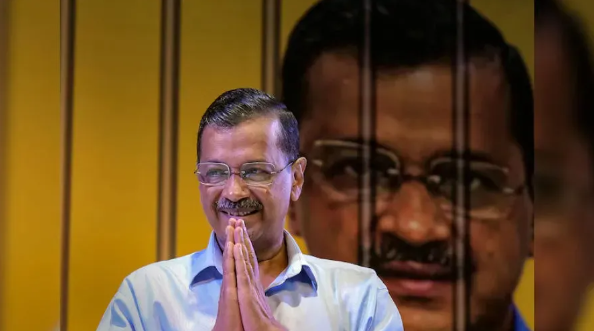Understanding the Laws Governing Early Elections to the Delhi Assembly (GS Paper 2, Polity)

Overview
- This article delves into the legal framework surrounding early elections to the Delhi Assembly, focusing on the roles played by the Election Commission of India (ECI), the Lieutenant Governor, and the Central government.
- It also discusses the current political landscape and preparedness for upcoming elections.
Why in News?
- Delhi Chief Minister Arvind Kejriwal is expected to resign in a meeting with Lieutenant Governor Vinai Kumar Saxena.
- He has requested early elections to the Delhi Assembly, proposing they coincide with elections in Maharashtra, despite the Delhi Assembly's term not expiring until February 23, 2025.
Responsibility for Election Scheduling
Article 324 of the Indian Constitution
- Authority of ECI: Article 324 grants the ECI the power to oversee and conduct elections, ensuring that the electoral process concludes before the Assembly's five-year term ends.
Representation of the People Act, 1951
- Election Timeline: According to Section 15(2), elections cannot be announced less than six months before the Assembly's term expires, unless the Assembly is dissolved earlier.
Factors Influencing Election Scheduling
Before finalizing an election schedule, the ECI considers:
- Constitution of New Assembly: The new Assembly must be formed before the current term ends.
- Logistical Considerations: Factors such as weather, security, festivals, training of election officers, and the procurement of Electronic Voting Machines (EVMs).
- Consultation with Local Authorities: The ECI consults local administrations and police to ensure effective coordination.
Role of the Chief Minister in Early Elections
Article 174(2)(b) of the Constitution
- Dissolution of Assembly: This article allows the Governor to dissolve the Legislative Assembly based on recommendations from the Council of Ministers. If dissolved, elections must occur within six months.
Unique Status of Delhi
- Government of National Capital Territory of Delhi Act, 1991: Under this act, the Lieutenant Governor has the authority to dissolve the Assembly, but the final decision rests with the Central government.
- Central Authority: Section 6(2)(b) specifies that even if the Chief Minister recommends dissolution, the Lieutenant Governor's action requires confirmation from the Centre.
Despite Kejriwal's desire for early elections, he has not formally recommended the dissolution of the Assembly. Decisions regarding his successor will be made during a meeting of AAP MLAs.
Current State of Preparedness for Elections in Delhi
- Focus on Other Elections: The ECI is currently preoccupied with the elections for the Jammu and Kashmir Assembly, taking place in three phases from September 18 to October 1.
- Upcoming Elections: Following J&K, elections in Haryana will occur on October 5, with results on October 8. Elections in Maharashtra and Jharkhand will follow, with their terms ending in November 2024 and January 2025, respectively.
- Electoral Roll Updates: A special summary revision of electoral rolls is conducted before elections. While the rolls for J&K, Haryana, Maharashtra, and Jharkhand were updated in August, Delhi’s updated rolls are scheduled for publication on January 6, 2025.
Conclusion
- The potential for early elections in Delhi hinges on various legal provisions and the interplay between the Chief Minister, Lieutenant Governor, and Central government.
- While the political landscape is evolving, the ECI’s current focus on other regions indicates that Delhi elections are not an immediate priority.
- Understanding these dynamics is crucial for comprehending the broader implications for governance and electoral processes in the National Capital Territory.


